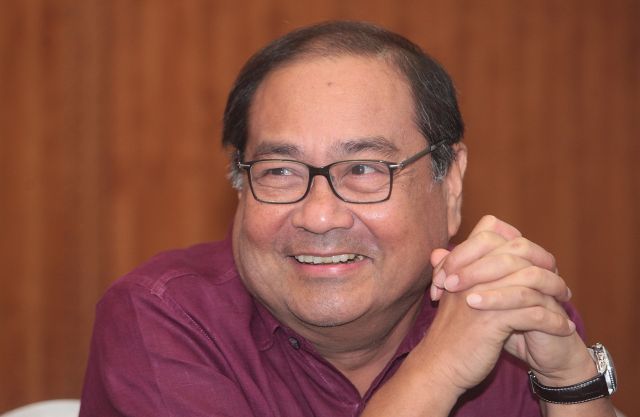
GARCIA
State prosecutors yesterday denied that there was inordinate delay which resulted in the dismissal of the graft case against former Government Service Insurance System (GSIS) president Winston Garcia involving an allegedly anomalous eCard project.
In its motion for reconsideration filed before the Sandiganbayan Second Division, the Office of the Special Prosecutor under the Ombudsman said the circumstances surrounding the six-year delay in its investigation would justify it and not make it “capricious” or “oppressive.”
The prosecution appealed the decision of the court to dismiss the case over the Ombudsman’s inordinate delay in finishing its investigation and filing the charge before the Sandiganbayan.
According to the graft charge filed by state prosecutors, Garcia in 2004 allegedly gave undue preference to Union Bank of the Philippines, causing damages in government by awarding the GSIS eCard project to the said bank without complying with the requirements under the implementing rules and regulations of the Republic Act 9184 or the Government Procurement Reform law.
The GSIS eCard is an automated teller machine (ATM) card used to disburse funds to the members of the state pension agency, the court noted.
The anti-graft court said the complaint against Garcia was filed before the Ombudsman on April 1, 2005. However, the anti-corruption agency took 10 years to investigate the complaint before filing it before the Sandiganbayan on Sept. 2, 2015.
The Ombudsman investigators took six years or until Sept. 12, 2011 to docket the complaint as a regular case.
The court said the Ombudsman’s Field Investigation Office “slumber(ed) through those six years” as if waiting for the results of the congressional investigation.
“By way of peroration, the Court rules that on the ground alone of violation of speedy disposition of the case, his case ought to be dismissed outright,” the court said.
In its appeal, the prosecution said the preliminary investigation was delayed after the GSIS in April 2005 wrote to the Ombudsman requesting to defer action on the Commission on Audit (COA) report finding an anomaly in the GSIS E-card project pending its petition to nullify the said report.
The prosecution said the GSIS in July 2005 went up to the Court of Appeals to secure an injunction on the COA’s notice of disallowance, which the appellate court granted in Sept. 2005.
The COA later questioned the injunction before the Supreme Court in Aug. 2006. The Supreme Court required both parties to submit their legal positions only five years later.
The prosecution said Garcia and the other accused failed to mention the circumstances surrounding the delay to the Sandiganbayan.
“The proceedings before the Field Investigation Office (FIO) or its investigation [were] not attended by vexations, capricious and oppressive delays, but justified by the factual and surrounding circumstances,” the prosecution said.
The prosecution said the Ombudsman FIO docketed the complaint in Sept. 2011 or two months before the Supreme Court required the parties to answer to the COA petition.
In 2013, the high court reversed the appellate court’s decision that granted an injunction on the notice of disallowance.
The prosecution said Garcia himself caused the delay in the Ombudsman investigation by filing his petitions before the Court of Appeals and appealing to defer action on the COA report.